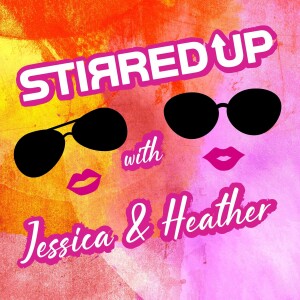Episodes

Thursday Feb 20, 2025
Thursday Feb 20, 2025
The United States Postal Service (USPS) delivers to 167 million addresses six days a week—an essential but costly obligation. Despite generating $80 billion annually it has faced *15 years of financial losses* while remaining self-funded, relying on low-interest federal loans.
From its roots in 1693’s first post office to Benjamin Franklin’s leadership, the USPS has played a crucial role in America’s economy and communication.
Over 600,000 employees keep the service running, but challenges like pension pre-funding (recently removed in 2022) and evolving customer expectations persist.
Is the USPS an essential right for American citizens, or just an outdated obligation?

Thursday Feb 13, 2025
Thursday Feb 13, 2025
This episode dives deep into the beloved grocery chain’s surprising origins, unique business model, and the controversies that have followed its success.
From its transformation from a California convenience store to a nationwide phenomenon, we unpack how Trader Joe’s keeps prices low, why its private-label products dominate the shelves, and how its locations impact real estate values.
But it’s not all smooth sailing—Trader Joe’s has faced criticism for gentrification, labor disputes, and culturally insensitive branding. Join us as we break down the history, the hype, and the heated debates surrounding this quirky grocery empire.
Whether you're a Trader Joe's fanatic or just curious about the business behind the brand, this episode is for you!
Trader Joe's Origins and History:
Trader Joe's is a German-owned company that started in California in 1958 as a convenience store named Pronto Market.
The founder, Joe, transformed Pronto Market into Trader Joe's after recognizing that his stores were too similar to 7-Eleven.
The name "Trader Joe's" was inspired by Trader Vic's, a tiki-themed restaurant. The tiki theme influenced the Hawaiian shirts worn by employees.
The company's founder, Joe, read in Scientific American that more people were attaining college degrees and that airplanes were becoming more accessible, and recognized that this created a market for higher quality goods at affordable prices.
Trader Joe's first opportunity to offer high quality goods at affordable prices came when a supplier offered extra-large eggs at the same price as regular eggs because other grocery stores did not want them.
Business Model:
Trader Joe's business strategy involves private labeling directly with suppliers. About 80% of their products are Trader Joe's branded.
By cutting out the middleman, Trader Joe's saves money on distribution costs.
Trader Joe's stores stock approximately 4,000 items, far fewer than the typical grocery store.
Trader Joe's is known for paying its employees well.
Trader Joe's also acquires old wine licenses so that they can operate as their own winery.
Controversies:
Trader Joe's has faced accusations of contributing to gentrification. In 2014, Trader Joe's halted plans to open a store in a historically Black neighborhood in Portland, Oregon, due to protests.
The company has been accused of union busting and has partnered with Space-X in a lawsuit against the National Labor Relations Board.
Trader Joe's has been criticized for products with labeling that plays into racist stereotypes. In response to petitions, Trader Joe's claimed it was already in the process of reverting a number of the international foods to Trader Joe's branding.

Thursday Feb 06, 2025
Thursday Feb 06, 2025
This week Jessica and Heather dive into all things NFL with unfiltered takes, wild theories, and plenty of laughs.
From Super Bowl nostalgia and halftime show debates to the NFL’s insane financial success and the latest drama—yes, even the Taylor Swift-Travis Kelce conspiracy—nothing is off-limits. Whether you’re a die-hard football fan or just here for the entertainment, Stirred Up breaks down the game, the brand, and the culture in a way that feels like hanging out with friends. Grab a drink and get ready to be stirred up!

Thursday Jan 30, 2025
Thursday Jan 30, 2025
How can the app known for endless dance trends and niche memes be the ticking time bomb for privacy and national security? In this episode, we break down the drama behind the TikTok ban to talk about what the real issue is and where we stand.
We’re diving into all the juicy details. It’s part tech, part politics, and all the tea—so hit play and dive in with us as we unpack what’s really going on behind your favorite app. Now that it's back, can we clink and stay on the app or are we closing it down for good?

Thursday Jan 23, 2025
Thursday Jan 23, 2025
In this episode, Heather and Jessica dive into the world of Carhartt—the iconic brand that’s gone from farm fields to fashion runways. 🚜✨
We’ll explore the history, cultural impact, and unique features that make Carhartt a favorite for everyone from students and skaters to forklift operators.
Heather shares her heartfelt story about her first Carhartt coat (spoiler: it went everywhere), while Jessica spills the tea on why people are dropping hundreds of dollars on vintage Carhartt pieces. 👷♂️
Key Highlights: The OG classics: Jackets, bibs, tees, and more 🧥
How Carhartt became a lifestyle staple (subway bibs, anyone?) 🚇
The surprising places you can buy Carhartt, from Tractor Supply to high-end boutiques Sustainability, durability, and why Carhartt gear only gets better with age ♻️
Does Jason Momoa’s have a role in contributing Carhartt’s creative?? yes! since 2015 💪
We’ll also talk about Carhartt’s iconic logo change, its roots in workwear, and even its pilot customization program for the ultimate in functional design. Join us for a mix of humor, history, and serious Carhartt love. Don’t forget to like, subscribe, and comment to let us know your favorite Carhartt piece or moment. 👕🛠️
#Carhartt #Workwear #Fashion #HeatherAndJessica

Thursday Jan 16, 2025
Thursday Jan 16, 2025
THE SPILL (0:00:00-0:21:00)
* Jessica shares about her refreshed feeling after returning to work from a break.
* Heather expresses her joy in working with kind and hardworking colleagues.
* Jessica discusses scaling back her workout routine due to prioritizing work, family, and holiday preparations, aiming to get back to normal for mental well-being and fitting back into her jeans. She also expresses her desire to run a 10K race.
* Heather shares concerns about potential perimenopause symptoms, including eye twitching, hip pain, sensitive teeth, and night sweats.
* Jessica recommends hormone panel testing based on her research and suggests consulting a different doctor if her current one dismisses the idea.
* Heather reveals her anxiety about doctor and dentist visits.
* Heather talks about succumbing to gray hair coverage and her experience hosting a hockey team dinner with some interesting family dynamics involving vaping.
* Jessica shares her attempt at "damp January" to reduce alcohol consumption.
THE REAL TEA - Buffalo Wild Wings: (0:21:00-0:53:30)
* Heather highlights her undying love, passion and obsession for B-Dubs.
* Jessica questions the appeal, comparing it to a commercialized, impersonal experience.
* They discuss B-Dubs' beer selection, acknowledging the limitations in craft beer variety.
* Jessica expresses interest in the franchise model's unique success and scale, particularly the consistency of the 40 beers on tap despite the challenges of managing diverse preferences and niche markets.
* Heather provides a historical overview of B-Dubs:
* Founded in 1982 by James Disbrow and Scott Lowery who, unable to find Buffalo-style wings after a skating competition in Ohio, saw a business opportunity.
* Originally called "Buffalo Wild Wing & Weck," referencing a popular beef sandwich in Buffalo, New York.
* Evolved from a college bar vibe to a sports-centric experience, capitalizing on the rise of MTV and televised sports.
* Began franchising in 1992.
* Went public in 2003
* Acquired by Arby's Restaurant Group (Inspire Brands) in 2017, becoming privately held.
CLINK OR CLOSE (0:53:30-1:00:00)
* Heather notes B-Dubs' philanthropic efforts, donating $31 million to charities, but finds their brand values and culture somewhat "vanilla".
* She shares data points on average manager and executive salaries, which are below national averages.
* Heather mentions a few isolated incidents related to racial bias and hygiene, but concludes that there are no systemic or alarming issues.
* Heather reiterates her appreciation for B-Dubs' simple appeal of cold beer, protein-rich wings, and a convenient, family-friendly environment.
* Jessica remains neutral, acknowledging the lack of strong personal opinions but acknowledging Heather's enthusiasm.

Thursday Jan 09, 2025
Thursday Jan 09, 2025
Think $5 rotisserie chickens and a 90% membership renewal rate are just happy accidents? Think again. Costco's unconventional business model has made them a retail giant, and it all starts with defying corporate norms. In this episode of Stirred Up, we dive deep into the Costco phenomenon, exploring how they've built a $250 billion empire by prioritizing employee well-being, offering high-value products at shockingly low prices, and strategically embracing a "loss leader" approach. Here's what we uncover:
Costco's remarkable employee-first culture: Discover how their above-average wages, internal promotion practices (70% of managers started at entry-level!), and unwavering commitment to Diversity, Equity, and Inclusion (DEI) initiatives create a highly engaged and loyal workforce.
The magic of the Kirkland Signature brand: Learn how their $56 billion private label, offering quality rivaling national brands, has become a cornerstone of their success.
The "loss leader" strategy that keeps customers coming back: We break down how Costco leverages strategically priced items, like the infamous $4.99 rotisserie chicken (sold at an annual loss of $40 million!) and the $1.50 hot dog combo, to attract shoppers and cultivate loyalty. Join us as we unpack the secrets behind Costco's success and debate whether their unique model is a blueprint for ethical and sustainable business practices — or a cleverly disguised "cult" that has us all hooked. Don't forget to share your thoughts in the comments! Are you a Costco convert? Or do you find their tactics questionable? We Cover a Hot Take on Costco's Controversial Shopping Experience
TIMESTAMPS
* **0:25:05 - 0:26:26:** Heather expresses frustration with Costco's entry and exit procedures, contrasting them with Sam's Club's more streamlined approach. She criticizes mandatory card presentations, receipt checks, and the perception of an "elite" shopping experience.
* **0:26:46 - 0:27:00:** Heather emphasizes her annoyance with Costco's perceived inconvenience, yet acknowledges the quality and value of their products, particularly organic options, keep her returning.
**Costco's Business Model and "Loss Leaders":**
* **0:30:56 - 0:31:07:** Jessica highlights Costco's low profit margins (10-11%) and their reliance on membership fees as the primary profit generator.
* **0:31:28 - 0:32:26:** The impressive 90% annual membership renewal rate is revealed, alongside the staggering valuation of the Kirkland Signature brand at $56 billion (excluding gasoline sales), surpassing prominent brands like Coca-Cola and Nike.
* **0:33:16 - 0:34:16:** Jessica dives into Costco's strategic use of "loss leaders," with a detailed explanation of their gas pricing strategy — offering premium gas at regular prices to attract higher-income customers.
* **0:39:17 - 0:39:49:** The podcast delves into Costco's famous $1.50 hot dog and soda combo, a deliberate loss leader. The former CEO's unwavering commitment to maintaining this price, even when facing potential losses, is emphasized.
**Costco's Employee-Centric Approach:**
* **0:47:27 - 0:48:09:** Jessica emphasizes Costco's above-average employee wages, with the median annual wage being $50,000. She contrasts this with Dollar General's significantly lower wages, discussed in a previous episode. * **0:48:15 - 0:48:25:** It's revealed that approximately 70% of Costco's management team began their careers at entry-level positions. The current CEO's inspiring journey, starting as a forklift driver 40 years ago, is highlighted.
* **0:49:26 - 0:50:20:** Costco's commitment to DEI initiatives is discussed. Their board of directors unanimously rejected a proposal from activist investors to abandon these efforts, demonstrating their principled stance and belief in the value of DEI. This contrasts sharply with Walmart, which has bowed to similar pressure, signaling a significant difference in values. **Costco's Overall Impact and Debate:**
* **0:52:10 - 0:52:36:** Jessica concludes that Costco, despite potential downsides, is not an "evil" company, highlighting their innovative merchandising strategies and employee-centric practices.
* **0:53:09 - 0:54:14:** The hosts engage in a friendly debate about whether Costco's tactics constitute "taking advantage" of their customers or simply represent a savvy business strategy. The conversation concludes with an invitation for listeners to share their perspectives.

Thursday Jan 02, 2025
Thursday Jan 02, 2025
Chick-fil-A is a fast-food phenom that inspires fierce devotion and equally intense debate. Revered for its iconic chicken sandwiches and legendary hospitality, the brand has cultivated a near-cult following, with fans praising its fresh ingredients and unwavering commitment to values like closing on Sundays. Yet, this same values-driven ethos has ignited fiery controversy, with critics passionately challenging its history of donations and stances on social issues, making Chick-fil-A a lightning rod in the cultural conversation. Heather and Jessica discuss it all. Can we clink or are we closing on Chik-FIl-A

Thursday Dec 26, 2024

Thursday Dec 19, 2024
Thursday Dec 19, 2024
Starbucks consumes 3% of the world's coffee and is known for their innovative employee practices as they are their coffee experience. Will Starbucks be able to sustain this growth in a pivotal enterprise turning point?





